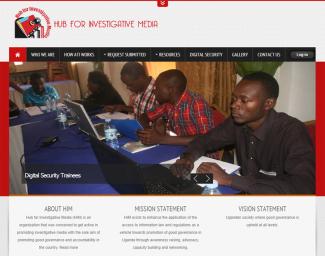Transparency
Making information laws work

The law itself passed by the parliament in 2005, but its regulations were not passed until 2011. Before that had happened, the law could not be entirely applied. Our independent Hub for Investigative Media (HIM) in Kampala has been advocating for full implementation. Since 2012, we have been filing information requests with different government agencies in line with this law.
Government officials in Uganda are known to behave like semi-gods who are doing the country the favour to serve. The notion that citizens – and especially journalists – can demand accountability from a government official seems like a myth, though it is the truth. The officers of many government entities that HIM contacted were startled that citizens were bold enough to demand information – which, in essence, is demanding accountability. The most common reaction was: “How dare you ask us for information?”
HIM actually conducted the exercise exactly as the ATI law provides. We knew that many government offices would deny us the information, but we did not relent, fully aware of the law allowing us to take any government entity that denies information to court. And that’s what we did. We dragged more than 10 government entities before judges for failure to comply with the ATI Act.
The government officials did not realise how serious the matter was until they lost case by case. Only then did they start calling HIM for dialogue. We kept on filing more and more requests for information with different government entities. We thought that in our endeavour to advocate for the implementation of the ATI law, it was better to work with government officials than against them. We realised that many of them were not even aware of the existence of the ATI law under which they can be sued for non-compliance.
Our action has made government officials aware of the ATI law and its provisions. HIM has also conducted a nationwide campaign to train journalists on the knowledge and application of the ATI law as right-holders.
Despite efforts to engage government entities to provide information, some have not responded to the call. Makerere University is one of them. One would expect the administration of this prestigious academic institution to be fully aware of the obligation to provide information to the public. But the university leadership is not, so HIM dragged them to court.
In the event, HIM requested information about the number of beneficiaries of the “State House Scholarship Scheme” at Makerere University. The president of Uganda established the scheme using public funds. It was meant to provide financial assistance to students from poor backgrounds, but it has been widely abused to benefit children of wealthy government officials.
Media freedom activists are optimistic that implementation of the ATI law will slowly pick up. This will not only make it easier for journalists to do their work, but also contribute to the improvement of good governance and transparency in the country. (es)









